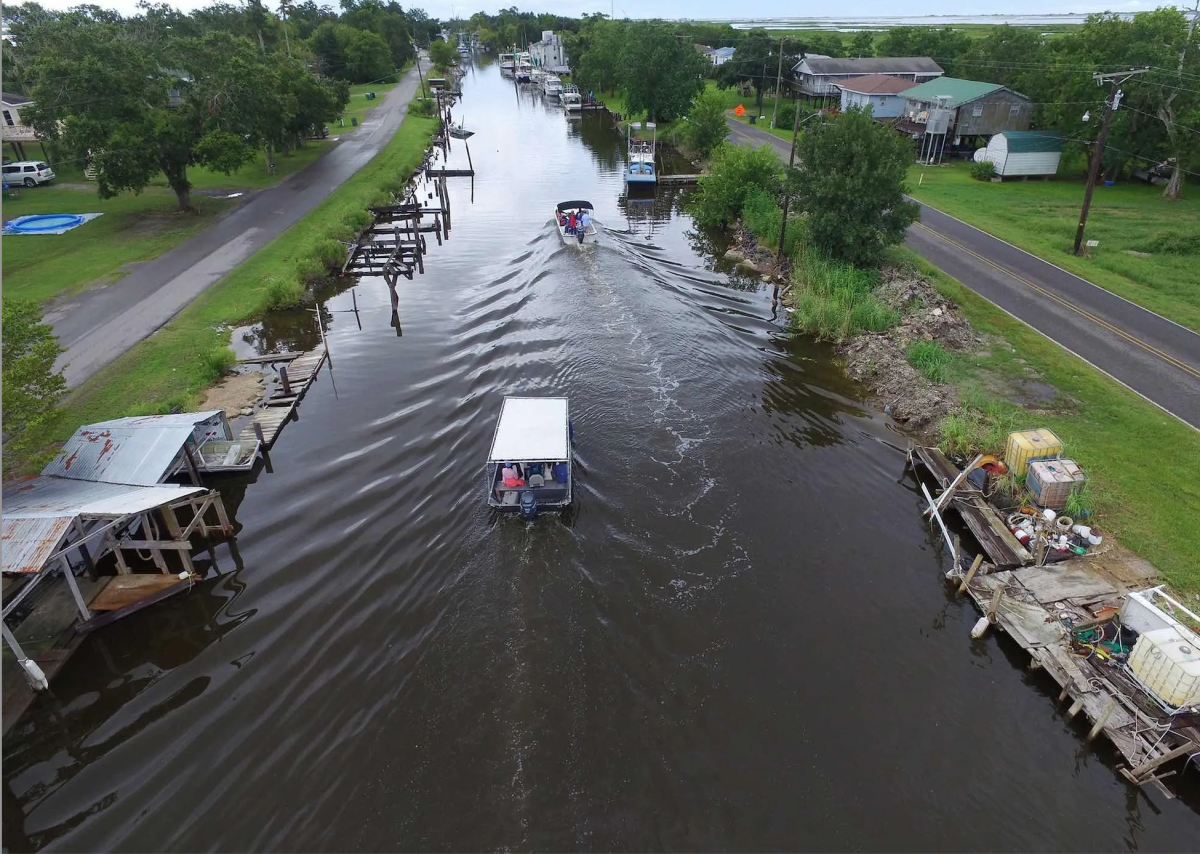LSU has won a $780,000 award from the National Academies of Science, Engineering and Medicine to aid the Pointe-au-Chien Indian Tribe in protecting its lands from coastal erosion. the university announced Jan 8..
The Pointe-au-Chien Indian Tribe, also known as PACIT, is a French-speaking tribe indigenous to the Terrebonne Basin, composed of about 800 members residing in southern Lafourche and Terrebonne parishes. LSU has been working with the Pointe-au-Chien Indian Tribe since 2022 to protect its home.
Matthew Bethel, Louisiana Sea Grant’s associate executive director of research, lead the work with an original grant of $100,000. Now, the National Academies’ Gulf Research Program has given LSU more than seven times that amount to continue its work.
“We lead this work by learning from the Tribe’s perspective and factoring in traditional ecological knowledge and priorities from the Tribe,” Bethel said in the original LSU press release.
According to the Tribe, its battle with land loss began in 1992 after Hurricane Andrew. The recurring storms and changing climate have forced PACIT members to elevate their homes and even relocate. Ever since, they have been consistently working with scientists to protect their homes and help them withstand the problems many coasts around the world continue to face.
“This small French speaking tribe continues to comprise a distinct community despite colonization, land loss, lack of status as a federally recognized tribe, exploitation of the land and people, and denial of educational opportunities,” reads the Tribe’s website.
The Terrebonne Basin is the fastest-eroding basin in the United States. PACIT’s website has a diagram showing all the land loss and some of the areas where it is regaining and protecting its land.
Coastal erosion, according to New Orleans’ Hazard Mitigation Plan, is “the wearing away of land or the removal of coastal wetland, beach or dune sediments by wave action, tidal currents, wave currents, or drainage.” It makes it clear Louisiana is one of the greatest victims of coastal erosion.
People all over the world are working on mitigating and reversing the effects of coastal erosion, with LSU making the field an academic priority. In the press release from LSU, Bethel talked about some of the techniques the Pointe-au-Chien Indian Tribe has been using.
One such technique came from the Coalition to Restore Coastal Louisiana or CRCL, a nonprofit that works on coastal restoration through on-the-ground work, advocacy, education and more.
Bethel describes how the tribe used the CRCL’s oyster shell recycling project. “That’s where they place oyster shells in areas needing protection. These not only serve as shoreline protection systems but also help baby oysters grow, and fish and crab colonies thrive,” she said.
LSU and PACIT will be working with researchers from the Louisiana Sea Grant, CRCL, and many more people in their journey to save Louisiana’s coast.







